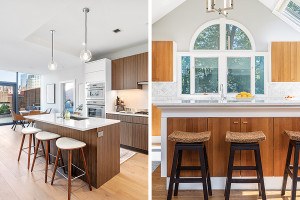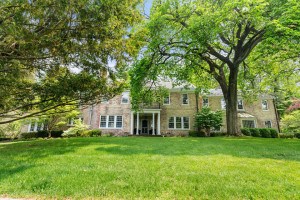Is Mayor Walsh About to Hit Real Estate Developers with a New Tax?
Appearing on NECN this morning, Mayor Marty Walsh discussed a range of issues facing the city, including housing that’s unaffordable to many of its residents. Here’s what Walsh had to say:
“We have a task force now looking; how do we create more workforce and affordable housing in the city of Boston? And we really have to come up with funding mechanisms on how to pay for it. The public can’t pay for it; it’s not taxpayers’ money. We have to come up with other ways to entice people to be able to build these houses: Developers.”
These comments seem to suggest that Mayor Walsh will be looking to developers to contribute more toward building the city’s affordable housing.
Boston’s current policy requires most developers—those building 10 or more units—to choose to do one of three things after they receive approval for a new project: build a number of affordable units onsite, equal to 15 percent of the market rate units; build a number of affordable units offsite (same percentage); or, pay a set amount into the city’s affordable housing fund (currently at $200,000 per unit). This is known as the Boston Inclusionary Development Policy.
Just to be clear: “affordable housing” here does not mean Section 8, subsidized, or public housing. The units built under the city’s policy are typically rented and sold by lottery to middle-class tenants and buyers, who earn between $46,000 – $76,000 a year.
Many developers like paying into the city’s affordable housing fund instead of building onsite or offsite units for several reasons, the most obvious one being they don’t want their market-rate tenants and owners to have to mingle with “poor” people, although, as I point out above, these are people who are solidly in the middle class.
The Boston Redevelopment Authority has collected approximately $113 million during the 13 years this policy has been in place. During a public hearing in April, Department of Neighborhood Development director Sheila Dillon said the BRA currently has a cash and accounts receivable balance in excess of $50 million, meaning almost half of the funds collected have yet to be spent on housing.
But, even if all of the BRA’s funds had been distributed and used for housing, only about 280 units could have been built with that $113 million—it costs around $400,000 to build one unit of housing in downtown Boston. (No, seriously.)
There are rumblings at City Hall (with lots of pressure being applied by neighborhood community activist organizations) to raise the $200,000 per unit cash contribution to a higher amount—with a doubling to $400,000 per unit being the consensus.
Even that would do little to solve the city’s housing problem. Over the past decade, during one of the city’s periods of greatest economic growth, the city added a total of approximately 20,000 housing units overall, an increase of about 8 percent of total housing stock. If half of those units had been built at prices “affordable” to low- and middle-income residents, it’s hard to see how it would have done much of anything to reduce the cost of housing in the city.
There are just two types of money: public money and private money. If Mayor Walsh is saying he won’t be counting on taxpayer revenue to build more affordable housing, then that leaves only one source of funds. But, it doesn’t appear to be realistic to think charging the city’s private developers for the right to build would do much to solve the problem, either.
Is there a pot of gold somewhere that we don’t know about?


